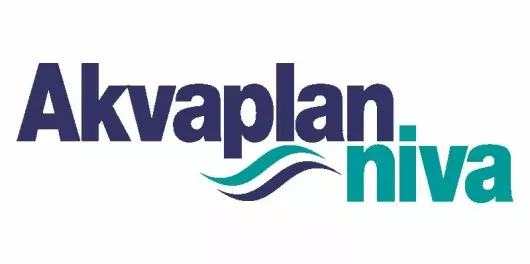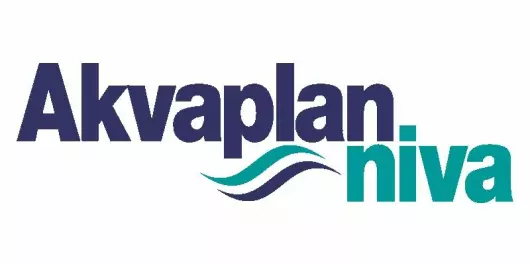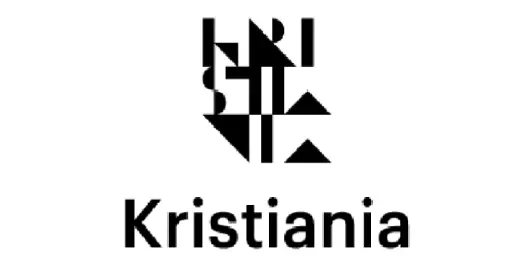Ledig stilling på Universitetet i Oslo
Blindern og Urbygningen (Foto: Wikimedia og Colourbox)
Post-Doctoral Research Fellowship in the EU project Global Asylum Governance and European Union's Role (ASILE)
Deadline: 26.03.2020
Job description
Universitetet i Oslo
The University of Oslo is Norway’s oldest and highest ranked educational and research institution, with 28 000 students and 7000 employees. With its broad range of academic disciplines and internationally recognised research communities, UiO is an important contributor to society.
The Norwegian Centre for Human Rights (NCHR) is a multi- and crossdisciplinary department with the Faculty of Law at the University of Oslo. The objectives of the NCHR are to conduct research, education, dissemination, and applied activities, in the field of human rights. The Centre promotes the field of human rights as an academic discipline, and emphasises the relationship between research, education and practical application of human rights. The NCHR currently has ca. 40 employees, including an academic staff of ca. 25 people and an international department with 8 employees. The centre is located in the new Law Faculty building “Domus Juridica”, in Oslo city.
1 Post-Doctoral Research Fellowship in in law or other relevant social science background (duration 28 months) is available at the Norwegian Centre of Human Rights, Faculty of Law, University of Oslo.
Would you like to do independent research on refugee rights, status, and vulnerability, as well as to contribute to policy-oriented outputs and policy-engagement? The Norwegian Centre for Human Rights (NCHR) at the Faculty of Law, University of Oslo, invites applications for a 28-month, full-time post-doctoral research fellowship. The position provides the opportunity to work as part of a leading international research collaboration on global refugee protection and in an interdisciplinary environment, in addition to excellent opportunities for professional development.
About the Project
The post-doctoral researcher will take part in the Global Asylum Governance and European Union's Role (ASILE)-project, funded by the European Union’s Horizon 2020 research and innovation programme under grant agreement No 870787. The ASILE project studies the interactions between emerging international protection systems and the United Nations Global Compact for Refugees (UN GCR), with particular focus on the European Union’s role and contribution. It examines the characteristics of international, country-specific and EU asylum governance instruments and arrangements, their gender and age specific impacts on individuals, and the sharing of responsibility from the perspective of their effectiveness, fairness and consistency with international and regional human rights and refugee law standards. ASILE is led by Dr. Sergio Carrera at the Centre for European Policy Studies (CEPS) in Brussels and includes leading scholars and practitioners in the field of International Refugee Law from 12 institutions.
The Faculty of Law, University of Oslo, implements the work package Refugee Recognition, Self-Reliance and Rights. It is led by Professor Maja Janmyr in collaboration with Professor Cathryn Costello (University of Oxford/University of Oslo) and Dr Lewis Turner (Arnold-Bergstraesser-Institut, Freiburg) The work package aims to facilitate a better understanding of how refugee protection is allocated and the rights enjoyed by refugees, in particular by providing critical insights into institutional practices employing the concepts of ‘vulnerability’ and 'self-reliance'. It will provide knowledge on Refugee Status Determination (RSD) practices in six case study countries, and in-depth comparative case study on the refugee recognition regimes in Jordan and Bangladesh.
Particular focus will be given to RSD, its links with resettlement, and the risks that refugee protection will be undermined by treating refugees instead as ‘vulnerable migrants’, or rationing refugee protection only to those deemed 'vulnerable'. Given the focus on self-reliance and work rights, the links between these issues and 'vulnerability assessments' will be explored in the case-studies. Questions that will be explored include: How does having the right to work, and obtaining work, potentially both mitigate and create exposure to different harms? How is this different for refugees of different genders, nationalities, skill levels, and class statuses, who all often experience different conditions, rewards, and harms at work? How do refugees themselves understand ‘vulnerability’ and the gains and harms that might accrue from the right to work?
Jordan and Bangladesh are chosen as in-depth case studies for four reasons. They are (1) on the list of the world’s top ten refugee-hosting countries and are currently dealing with deeply protracted refugee situations. They have (2) informal and weak refugee recognition processes and (3) weak refugee rights protection, as evidenced by mobility and work restrictions. In both cases, (4) the EU and its Member States have a role in sustaining the status quo, and perhaps leveraging better protection.
More about the position
The post-doctoral researcher’s role in the project
The post-doctoral researcher will contribute to the UiO-work package Refugee Recognition, Self-Reliance and Rights. They will play a lead role in the in-depth work on Bangladesh and must have relevant methodological skills to conduct qualitative field research in Bangladesh, in addition to excellent analytical and writing skills. Researchers within ASILE are expected to use the fieldwork and data to produce scientific publications, in addition to the work package outputs.
The position includes the following
1. Conduct an independently developed research project that accords with the theme of the UiO-work package Refugee Recognition, Self-Reliance and Rights.
2. Conduct independent qualitative field research in Bangladesh.
3. Collaborate with work package participants (Janmyr, Costello and Turner) in conducting research for, and drafting, the main work package outputs: working paper on the legal standards to assess the right to work and refugee self-reliance practices; working paper on links between refugee recognition and resettlement processes; country reports related to status, vulnerability and rights; comparative report of refugee recognition regimes in Jordan and Bangladesh.
4. Disseminate research findings as per the project plan, including at the annual ASILE consortium meetings and regular policy seminars.
Applicants should develop a 3-5 page project description (see below) which is framed within the overall framework of the work package Refugee Recognition, Self-Reliance and Rights, and be familiar with the ASILE project’s contents and objectives. Critical approaches to the field of International Refugee Law are particularly welcome. Interested candidates are strongly advised to contact the work package leader, Professor Maja Janmyr, including with informal enquiries or questions, prior to applying maja.janmyr@nchr.uio.no.
About the research environment
The successful candidate is expected to join the existing research milieu and contribute to its development. At the NCHR, they will be a part of an interdisciplinary research group focusing on the linkages between International Refugee Law and states that have not ratified the 1951 Refugee Convention. Professor Maja Janmyr is Principal Investigator (PI) for the ERC Starting Grant (2020-2025) project Protection without Ratification? International Refugee Law beyond States Parties to the 1951 Refugee Convention (BEYOND), as well as the project Refugees and the Arab Middle East: Protection in States Not Party to the Refugee Convention (REF-ARAB), funded by the Research Council of Norway (2019-2023). The post-doctoral researcher will as such join a creative and stimulating environment dedicated to exploring global refugee protection from a diverse range of perspectives.
The main purpose of the post-doctoral research fellowship is to qualify the researcher for work in higher academic positions within their disciplines. The work package leader is committed to supporting the post-doctoral researcher’s professional development through opportunities for gaining new competencies and building a strong publication record.
Qualification requirements
- PhD or equivalent academic qualifications in law or other relevant social science background, such as sociology of law, socio-legal studies and legal anthropology. Experience from Bangladesh and/or refugee studies is strongly desirable.
- The doctoral dissertation must have been submitted for evaluation by the closing date. Appointment is dependent on the public defence of the doctoral thesis being approved.
- The 3-5 page description of the candidate's independently developed research project must be closely connected to the overall framework of the work package Refugee Recognition, Self-Reliance and Rights, and this must be clearly elaborated in the project description.
- Fluent oral and written communication skills in English.
- Knowledge of Bengali is desirable.
- Personal suitability and motivation for the position.
In the evaluation of the applications, emphasis will be placed on:
- The project description’s scientific merit and research-related relevance.
- The applicant’s estimated academic and personal ability to carry out the project within the allotted time frame and contribute to ASILE as a whole.
- Proven ability to work independently (e.g. previous field research experience).
- Good co-operative skills, and the ability to successfully join in academic collaboration within and across disciplines.
We offer
- Salary 532 300- 594 400 NOK per annum depending on qualifications
- Academically stimulating working environment
- Pension arrangements in the Norwegian Public Service Pension Fund
- Attractive welfare benefits, in addition to Oslo’s family- friendly environment with its rich opportunities for culture and outdoor activities.
How to apply
The application must include:
- Application letter describing the applicant’s qualifications and motivation for the position.
- Curriculum Vitae with grades listed (with a list of education, positions, teaching experience, administrative experience and other qualifying activities).
- List of publications.
- Up to three previous academic works in full text that the applicant considers most relevant for the position (e.g. published journal articles and/or monographs and/or PhD thesis).
- A 3-5 page description of the independent research they would pursue under the themes of the work package Refugee Recognition, Self-Reliance and Rights The description must include the proposed methodological approach and present a feasible progress plan.
- Copies of educational certificates (PhD and MA).
- Names and contact details for at least two reference persons.
Please note that all documents must be in English or a Scandinavian language. Applicants with education from a foreign university must attach an explanation of their university’s grading system.
The application with attachments must be delivered in our electronic recruiting system, please follow the link “Apply for this job”.
The short-listed candidates will be invited for an interview.
The position is available for a period of 28 months. The tentative starting date is September 2020.
Formal regulations
Please see the guidelines and regulations for appointments to Postdoctoral fellowships at the University of Oslo.
No one can be appointed for more than one Postdoctoral Fellow period at the University of Oslo.
According to the Norwegian Freedom of Information Act (Offentleglova) information about the applicant may be included in the public applicant list, also in cases where the applicant has requested non-disclosure.
The University of Oslo has an agreement for all employees, aiming to secure rights to research results etc.
The University of Oslo aims to achieve a balanced gender composition in the workforce and to recruit people with ethnic minority backgrounds.
Contact information
- Professor Maja Janmyr, Faculty of Law, University of Oslo, email: maja.janmyr@nchr.uio.no
Apply for this job














